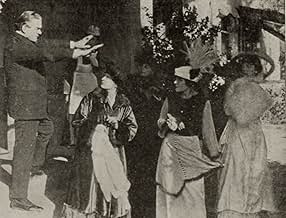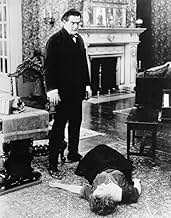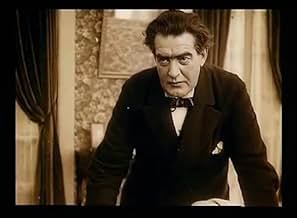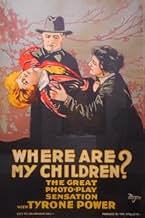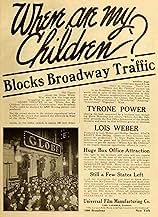AVALIAÇÃO DA IMDb
6,3/10
891
SUA AVALIAÇÃO
Adicionar um enredo no seu idiomaA District Attorney's outspoken stand on abortion lands him in trouble with the local community.A District Attorney's outspoken stand on abortion lands him in trouble with the local community.A District Attorney's outspoken stand on abortion lands him in trouble with the local community.
- Prêmios
- 1 vitória no total
Tyrone Power Sr.
- District Attorney Richard Walton
- (as Mr. Tyrone Power)
Mrs. Tyrone Power
- Mrs. Richard Walton
- (as Helen Riaume)
Alva D. Blake
- Roger - Mrs. Walton's Brother
- (as A.D. Blake)
George Berrell
- Judge
- (não creditado)
Georgia French
- Child
- (não creditado)
Mary MacLaren
- Walton's Maid
- (não creditado)
Andy MacLennan
- Man on Street
- (não creditado)
Anne Power
- Infant
- (não creditado)
Enredo
Você sabia?
- CuriosidadesThe two children of Tyrone Power Sr. and his co-star and real-life wife Helen Reaume (aka, Mrs. Tyrone Power), appear in this film: their newborn daughter Anne Power and their two-year-old son Tyrone Power, who became a matinee idol from the 1930s to the 1950s. He appears in the last minute and a half of the movie as a "ghost child".
- Citações
Opening Title Card I: The question of birth control is now being generally discussed. All intelligent people know that birth control is a subject of serious public interest. Newspapers, magazines and books have treated different phases of this question. Can a subject thus dealt with on the printed page be denied careful dramatization on the motion picture screen? The Universal Film Mfg. Company believes not.
- Versões alternativasIn 2000, the Library of Congress Motion Picture Conservation Center copyrighted a preservation print reconstructed from several incomplete prints. Funded by the Women's Film Preservation Fund of New York Women in Film and Television, it was coordinated by Scott Simmon, has a piano score composed and performed by Martin Marks, and runs 62 minutes.
- ConexõesEdited into Governing Body (2023)
Avaliação em destaque
This remarkable film provides a rare opportunity to see the celebrated British-born stage actor Tyrone Power (1869-1931), whose son - now far more famous than he - appears in the film as a toddler. The action takes place largely in and around the palatial home of district attorney Richard Walton (played by Power), which in the handsome tinted print currently available considerably helps sugar the pill of the unglamorous and sometimes harrowing detail of this extremely skilfully made film.
Only last week a British Tory MP caused red faces when comments he made five years ago proposing that the jobless have vasectomies became public knowledge; which shows that despite the Nazis' best effort to bring eugenics into disrepute, concern about Homo Sapiens' thinning gene pool continues unabated in the 21st Century, recently well expressed in the movie 'Idiocracy' (2006).
Initially the subject of 'Where Are My Children?' appears to be the advocation of contraceptive birth control as the means to end the misery inflicted upon impoverished women repeatedly bearing children they cannot afford to raise; but even here the implication is the rather heartless one that it would have been better had all the dishevelled and ill cared-for children we see never actually been born in the first place.
However, the focus then shifts to the affluent set, whose womenfolk are depicted as self-centred hedonists shirking their responsibility to future generations by not reproducing; an opinion you'll still hear being expressed today. These women seem to have maintained their state of pristine childlessness through regular abortions - like visits to the dentist - rather than the use of contraception.
Was this really the case a hundred years ago?
Only last week a British Tory MP caused red faces when comments he made five years ago proposing that the jobless have vasectomies became public knowledge; which shows that despite the Nazis' best effort to bring eugenics into disrepute, concern about Homo Sapiens' thinning gene pool continues unabated in the 21st Century, recently well expressed in the movie 'Idiocracy' (2006).
Initially the subject of 'Where Are My Children?' appears to be the advocation of contraceptive birth control as the means to end the misery inflicted upon impoverished women repeatedly bearing children they cannot afford to raise; but even here the implication is the rather heartless one that it would have been better had all the dishevelled and ill cared-for children we see never actually been born in the first place.
However, the focus then shifts to the affluent set, whose womenfolk are depicted as self-centred hedonists shirking their responsibility to future generations by not reproducing; an opinion you'll still hear being expressed today. These women seem to have maintained their state of pristine childlessness through regular abortions - like visits to the dentist - rather than the use of contraception.
Was this really the case a hundred years ago?
- richardchatten
- 23 de jan. de 2018
- Link permanente
Principais escolhas
Faça login para avaliar e ver a lista de recomendações personalizadas
Detalhes
- Data de lançamento
- País de origem
- Idiomas
- Também conhecido como
- Where Are My Children?
- Locações de filme
- Empresas de produção
- Consulte mais créditos da empresa na IMDbPro
- Tempo de duração1 hora 2 minutos
- Mixagem de som
- Proporção
- 1.33 : 1
Contribua para esta página
Sugerir uma alteração ou adicionar conteúdo ausente

Principal brecha
By what name was Onde estão meus filhos? (1916) officially released in Canada in English?
Responda
